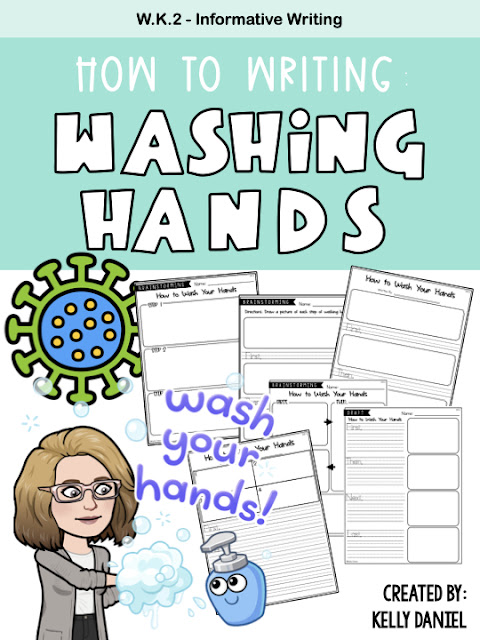 |
| Photo | United Nations I'm not sure about you, but I love a good "fact list" and if you're like me you're in luck - I rounded up one for you about hand washing.
Want more interesting/gross facts about hand washing?
We all know hand washing is important and now amid Covid-19 there's even more of an emphasis on not just doing it, but doing it correctly. Reported in May, the *United States has shown more than 100,000 Coronavirus deaths and that number is astonishing. It represents people - not just numbers - and should be a reminder to us all about the seriousness and importance behind preventative measures...like hand washing. a hand washing emphasis at schoolAs schools reopen and campuses begin to fill with children and staff it's ever more important that measures are in place to keep everyone healthy. This means a constant discussion with students about hand washing and to be diligent about how students are washing their hands. Instead of just instructing students, it's really important to involve them in the process of it. The more we're able to get kids doing the washing, but also sharing the information on how to wash hands correctly are we going to see a different in their abilities to do it. Also, it's going to be something we'll be teaching day in and day out all year.
Hand Washing ExperimentA great addition to any hand washing lesson is the good 'ole pepper experiment. It's a great visual for kids to see how germs (being the ground pepper in this case) react to disinfectant like soap. Gather the materials to do an in-classroom experiment or preview this video together: Informative WritingTo help blend students' learning to this newfound need to inform and protect against germs and Covid-19, I've created this intro activity to informative writing! At the beginning of the year in kindergarten, students are just beginning to really focus on a number of writing skills such as proper pencil grip, fine motor control, and letter formation. The beginning of the year is also a great time to introduce mentor texts so students can learn with real-life authors and pieces of work to practice their own craft. To launch writing this upcoming year I'm preparing to blend it with our theme of health and safety. Before students begin writing, we'll naturally spend the weeks leading up with read alouds, shared writing experiences, and discussions about germs and hand washing. Once students have built up enough schema, or background knowledge, on the subject they then will become the expert and share their thinking with others. Hand washing postersIn this How To Writing: Washing Hands resource I've included everything you'll need to launch a successful lesson that introduces informative writing about washing hands. At this point students would have a variety of experiences related to washing hands and will be ready for their first major writing project! Included are a set of step-by-step posters that can not only be used during this lesson, but are great to post in your classroom at the sink area or near your door should you not have a sink in your room. Here's how I recommend you use them: Kindergarten - 1st Grade For the lower grades I created posters that only have 3 steps and the final step can be interchanged depending on preference of the process. Either way, the steps include:
2nd Grade - 5th Grade For upper grades you can easily add in an extra step to extend their comprehension and writing. This will include:
Differentiated Writing PagesThis resource is aimed for kindergarten writers, but can easily be adapted for students who are further along in their writing abilities or even first grade. All pages are differentiated to provide a variety of ways in which students can write out their thinking. These pages can be used as a means of practice after a whole group lesson with the teacher modeling each step. Or they can be used as a part of a shared writing experience in whole or small groups. I created two different styles - one being for beginning writers who use pictures or beginner to moderate writers using pictures and invented spelling for each step. For later in the year or for older grades these other pages can be used which include 1 extra step so that students write in a traditional way using their retelling words: first, then, next, last. This is a great way to bridge their learning across reading and writing. I hope you find this resource to be helpful as we all navigate a new school year! |
Back to School | A Lesson on Hand Washing
May 29, 2020
Hey there!





